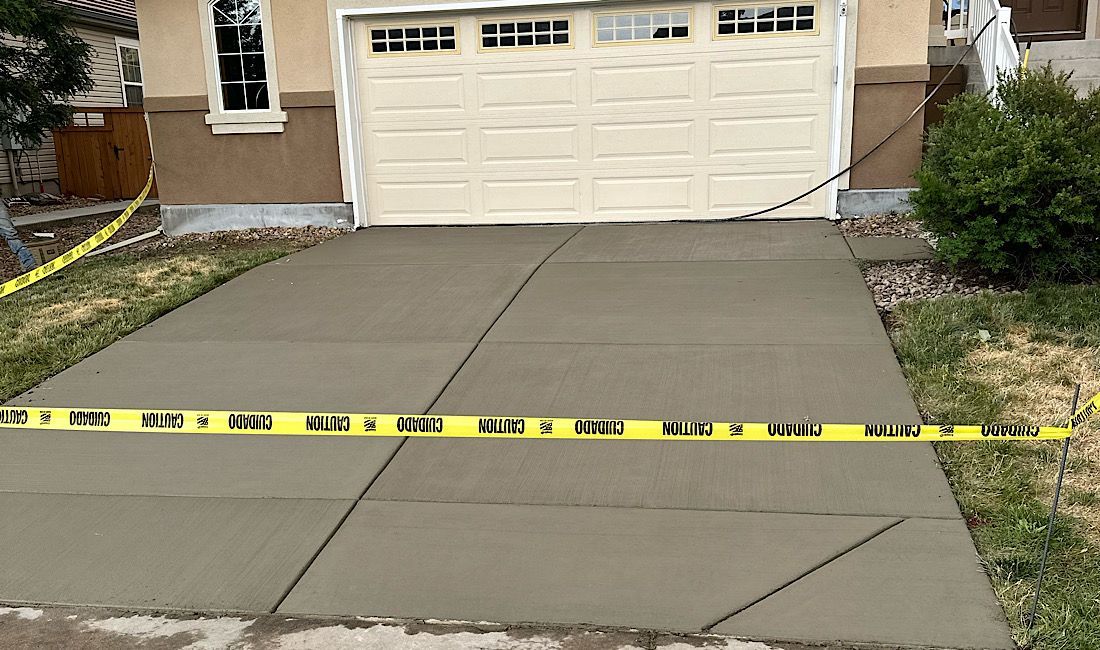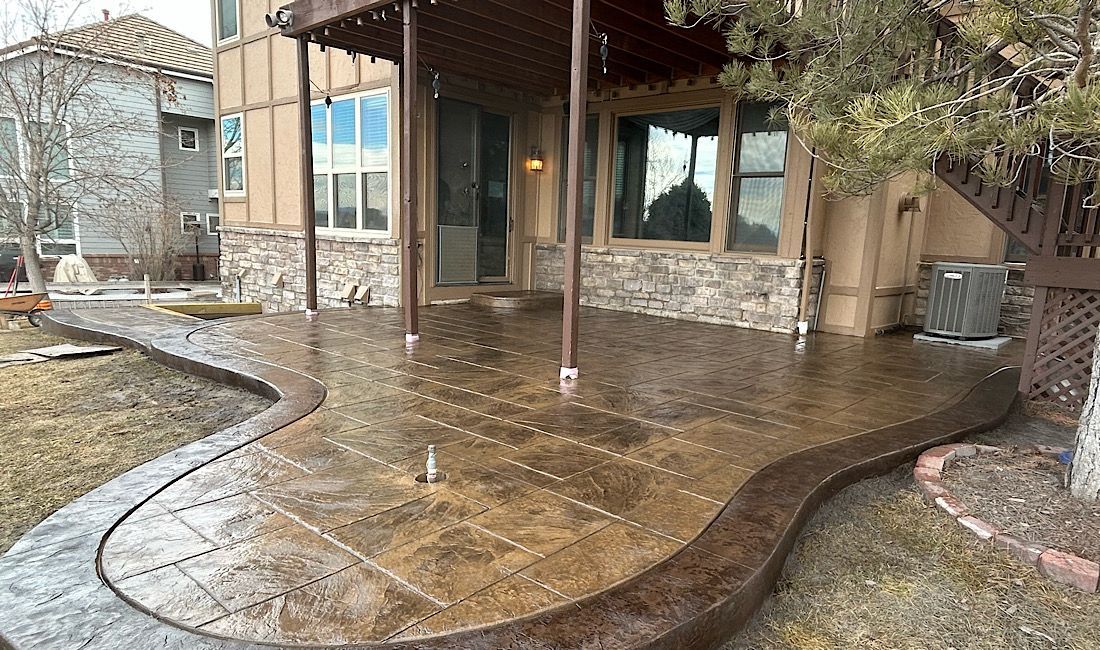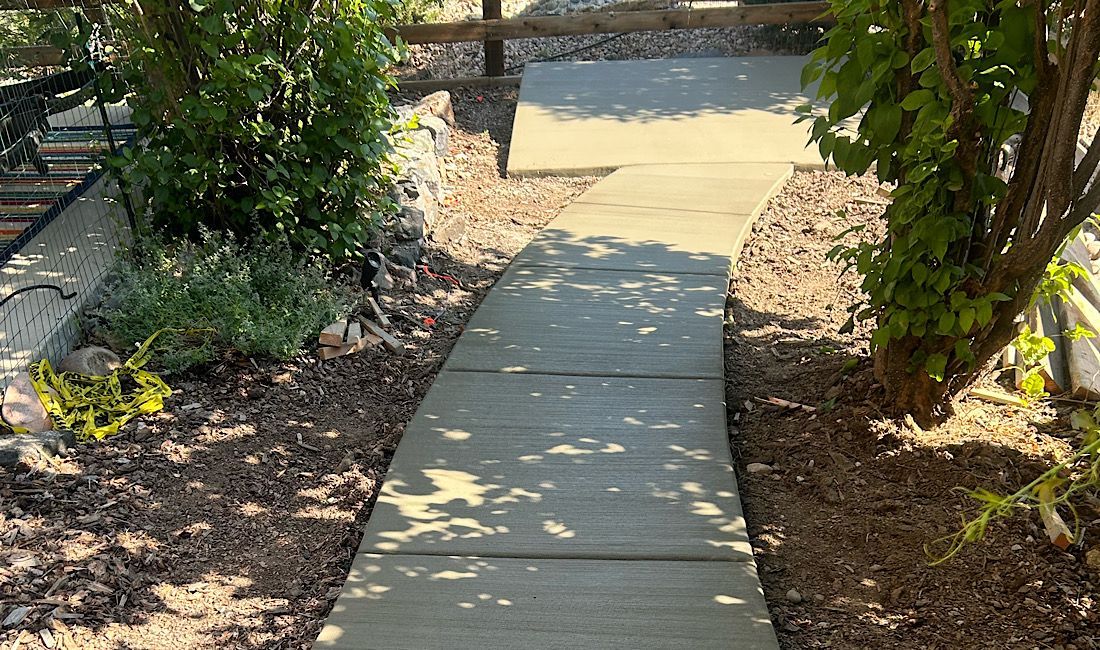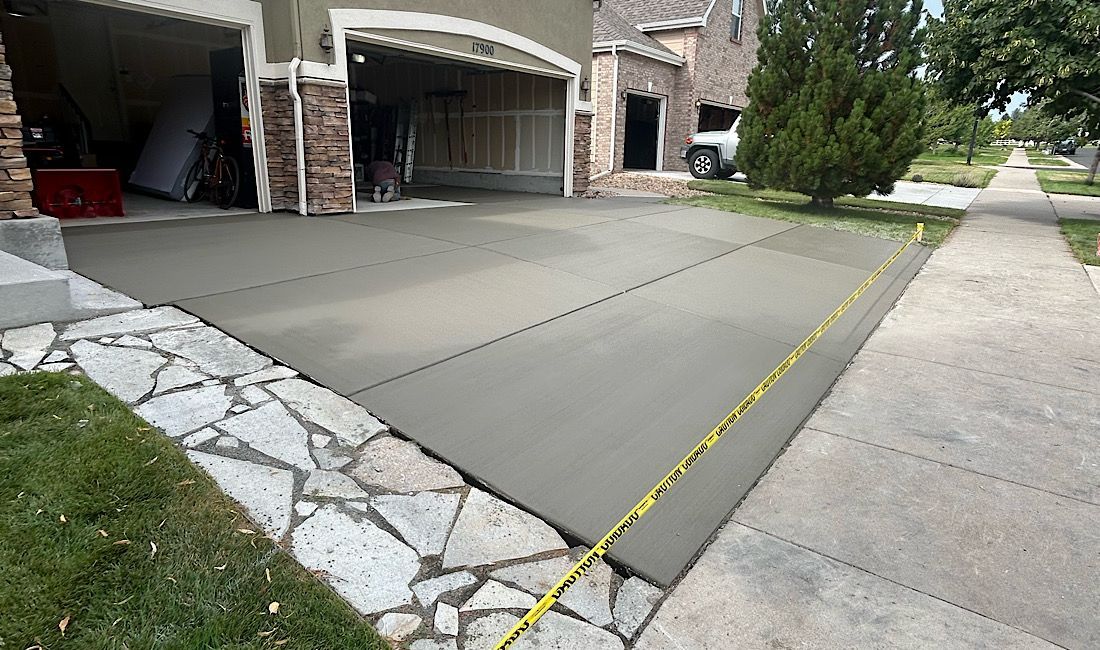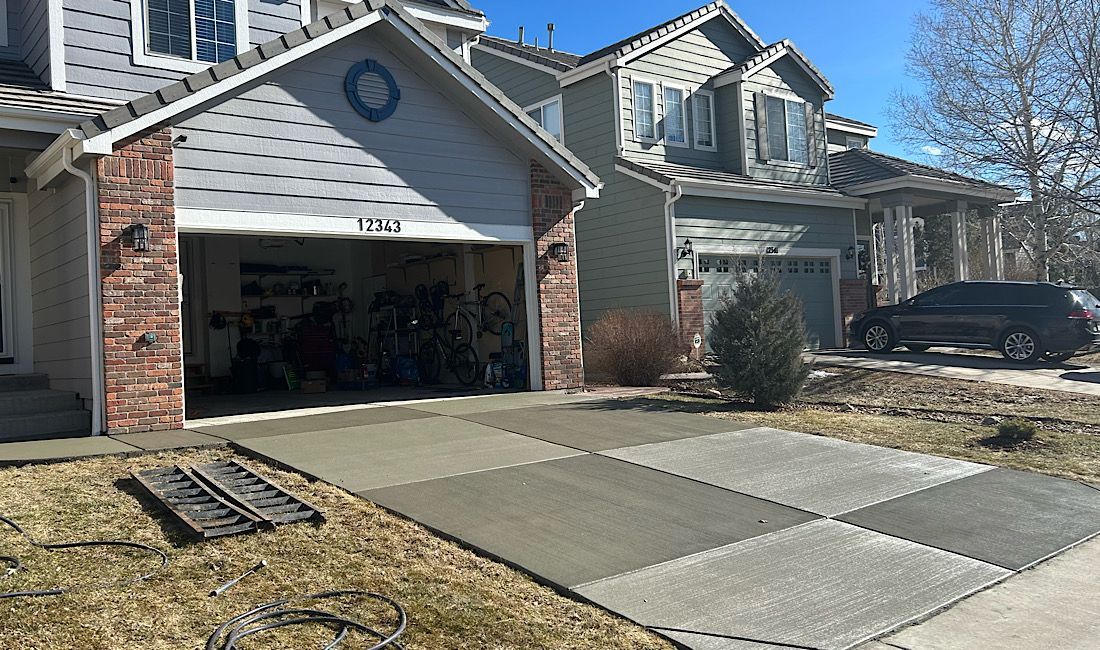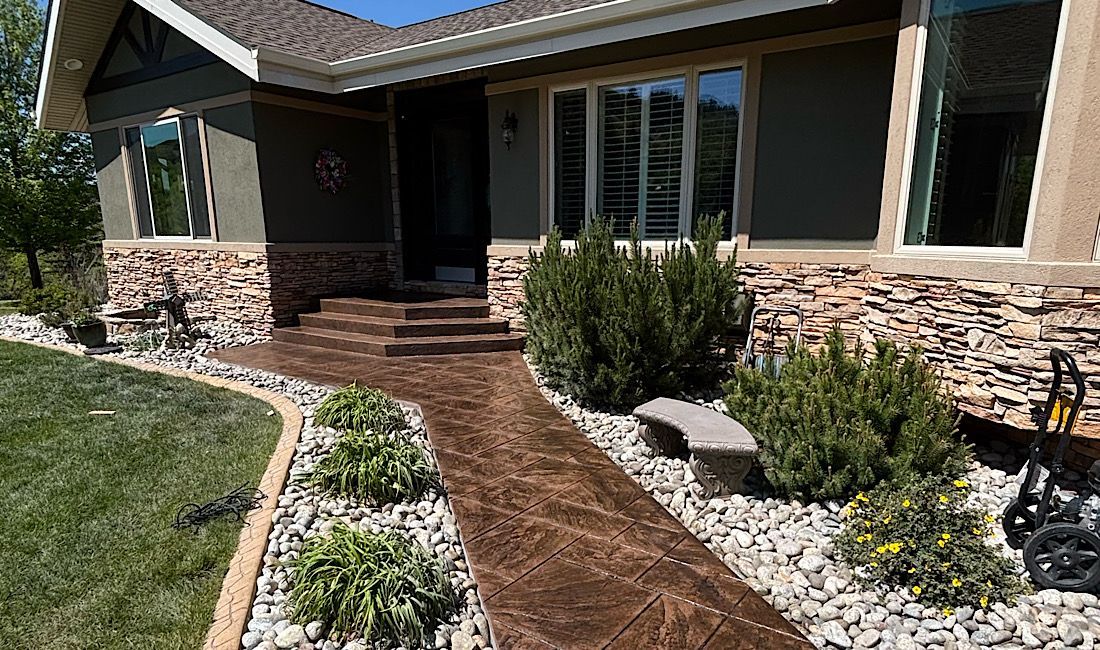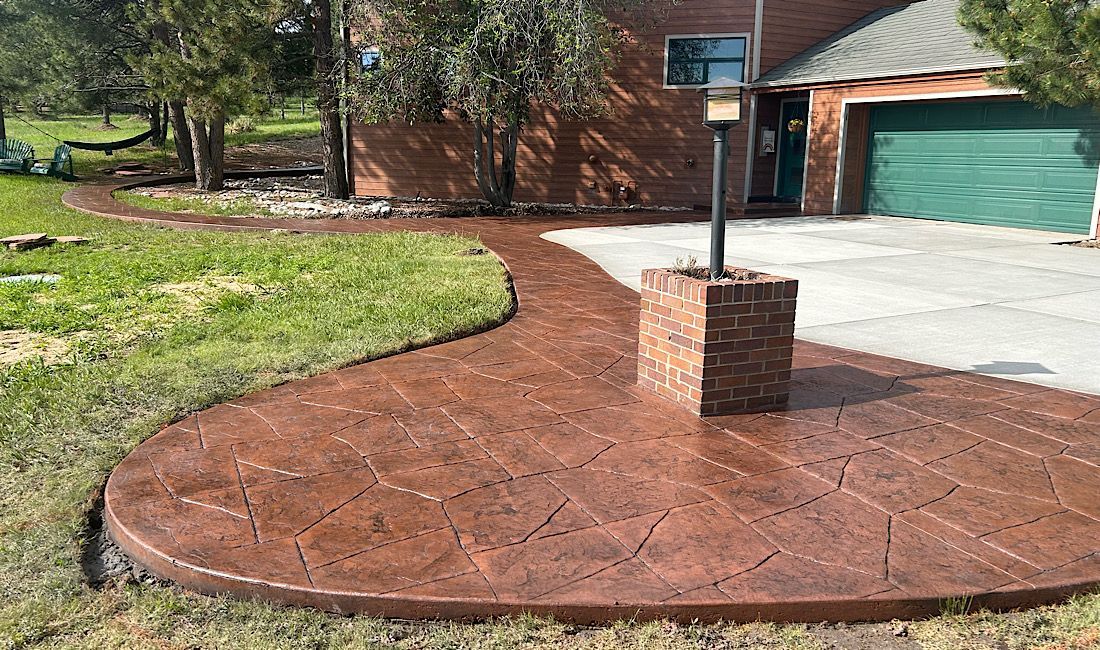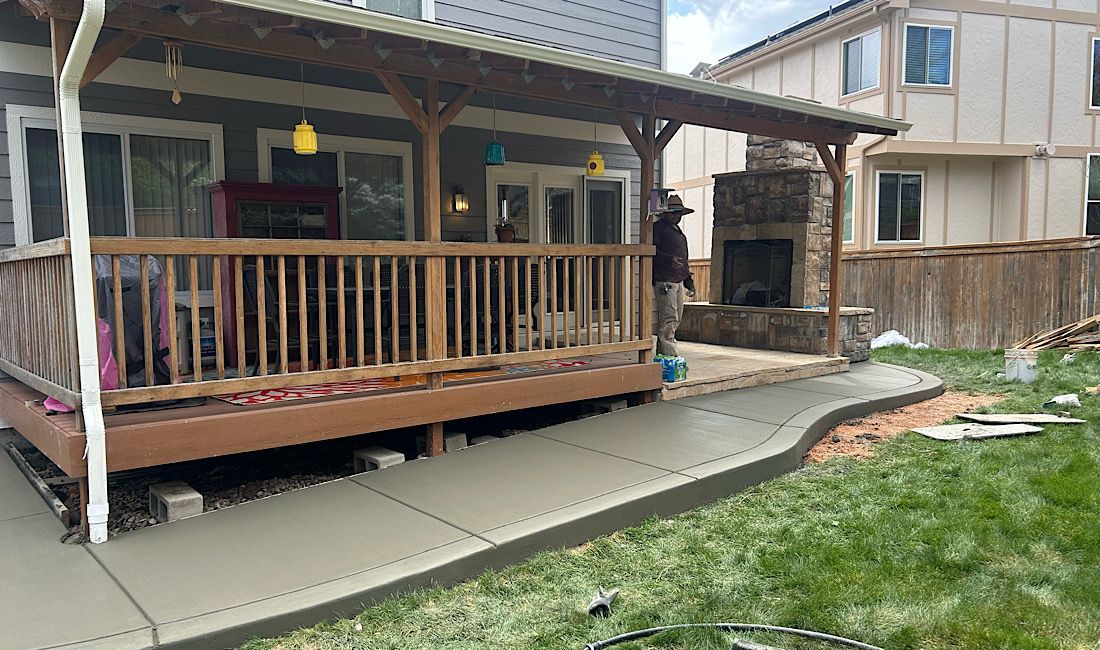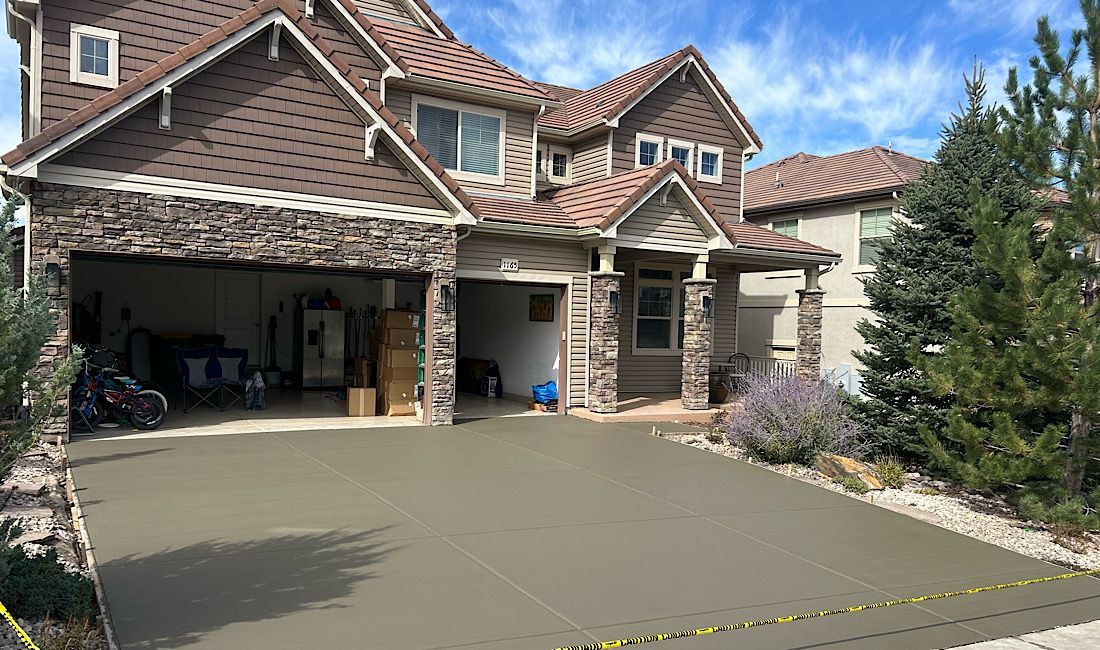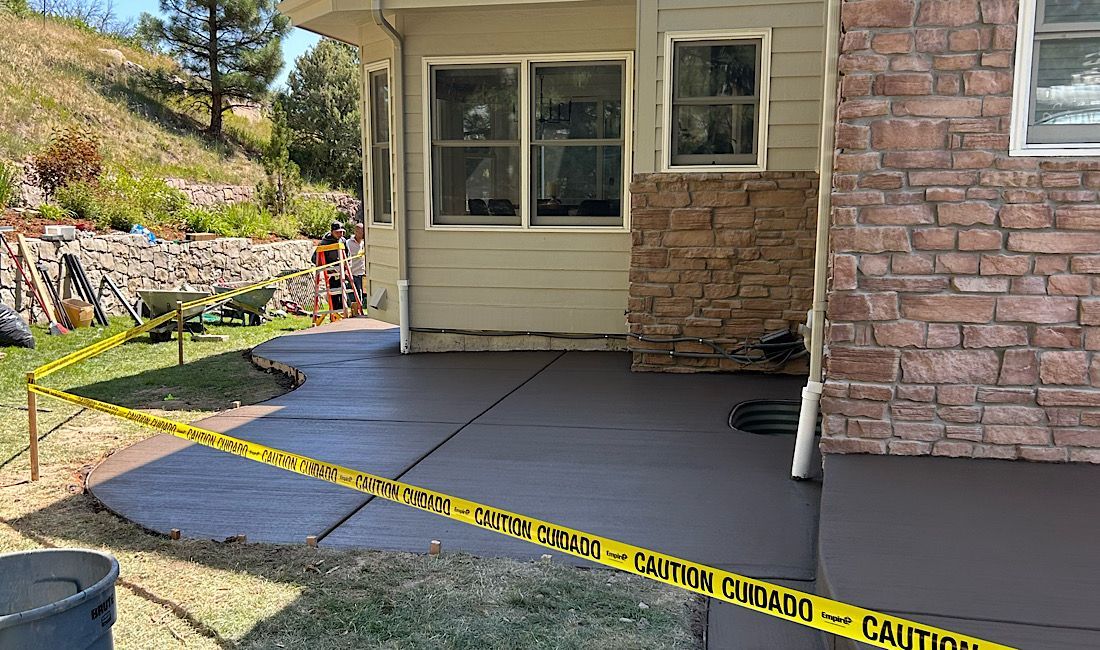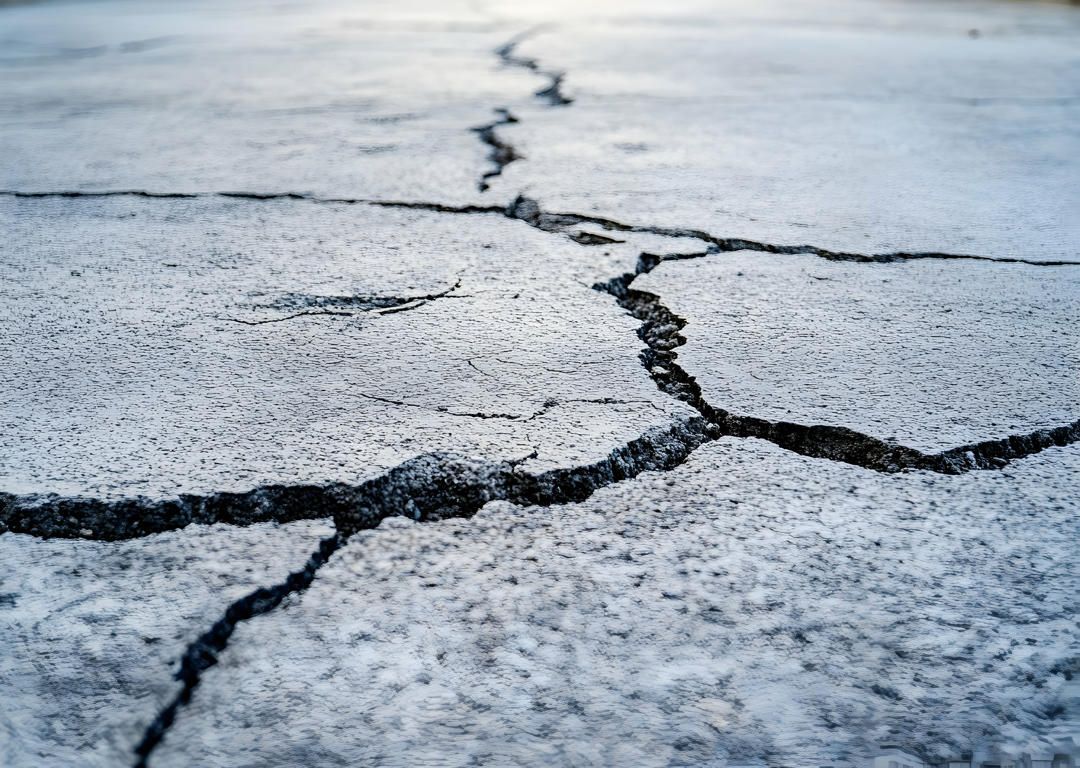
In today’s DIY-driven culture, it’s easy to believe that pouring your own patio or walkway is just another weekend project. Online videos, big box store kits, and an eagerness to save money can make it feel doable. But when it comes to concrete, there’s a lot more beneath the surface—literally and figuratively.
Concrete work demands precision, timing, proper materials, and knowledge of climate behavior. Denver’s high elevation, freeze-thaw cycles, and dry heat can complicate even a basic pour. For many homeowners, an enthusiastic start turns into an uneven slab, premature cracking, or a patio that doesn’t drain correctly. What began as a money-saving DIY can quickly become a costly redo.
At Creteworx, we’ve seen it all — from sunken sections to improperly mixed concrete that flakes within months. This blog is here to help you spot common DIY concrete fails, understand when to take action, and know when it’s best to call in the professionals.
Top DIY Concrete Mistakes We See in the Denver Area
Every region presents its own set of challenges for concrete work. In Colorado, high UV exposure and fluctuating temperatures require techniques and materials suited to local conditions. Unfortunately, most DIY kits or internet tutorials don’t take that into account.
Here are the most common DIY mistakes we encounter:
Inadequate Ground Preparation
Failing to level and compact the soil or skipping a proper gravel base leads to shifting, sinking, or cracking after just one season.
Improper Concrete Mixing
Whether too much water is added or the mix isn’t blended correctly, weak concrete results in surface dusting, crumbling edges, or inconsistent texture.
No Control Joints
These expansion joints prevent cracking due to concrete movement. Without them, your DIY slab is likely to develop unsightly breaks.
Incorrect Slope and Drainage
Concrete needs to slope away from the home to prevent water pooling or basement leaks. Even a half-inch miscalculation can create major drainage issues.
Poor Timing or Curing
Working in the heat of the day, or not properly curing the concrete, can cause surface defects like scaling, rapid shrinkage, and color inconsistencies.
Using the Wrong Finishing Tools
Finishing concrete too early (or too late) with the wrong tool can create slippery surfaces, air pockets, or uneven textures — especially problematic in walkways and patios.
When these issues show up, they don't just affect aesthetics — they can impact safety, resale value, and even the foundation of your home.
Repair or Replace? A Quick Decision Guide
Wondering if your DIY concrete project can be salvaged or needs a full redo? Use this checklist to help guide your next steps:
Issue: Small cracks (under 1/8 inch)
Decision: Repairable with sealant or filler. Watch for spreading.
Issue: Uneven surface or minor sinking
Decision: May be fixable with concrete lifting or overlay.
Issue: Major cracking, shifting slabs
Decision: Likely needs removal and replacement.
Issue: Poor drainage or water pooling
Decision: Professional regrading and re-pour typically required.
Issue: Flaking, scaling, or dusting surface
Decision: Surface resurfacing or overlay may help, depending on extent.
Issue: Concrete was mixed improperly (crumbly, soft)
Decision: Replace — structural integrity is compromised.
Issue: No joints or finishing errors
Decision: Depends on severity. Call for a professional assessment.
In any of these situations, Creteworx can provide a no-obligation site visit and assessment. We'll let you know if repairs are feasible or if a new installation is the smarter long-term solution.
Why DIY Isn’t Always the Saver It Seems
It’s tempting to tackle concrete work yourself, especially with rising labor costs and endless home improvement inspiration. But poor results can cost far more in the long run.
Consider the hidden costs of a failed DIY:
- Tools & equipment rental
- Re-purchase of materials
- Labor to remove the failed pour
- Loss of time and effort
- Safety risks or water damage if improperly sloped
According to HomeAdvisor, the average cost to tear out and replace a poorly installed concrete patio ranges from $2,000 to $6,000 — often double the cost of doing it right the first time with a professional.
The Creteworx Difference: Local, Lasting, Proven
Creteworx doesn’t just pour concrete — we design hardscapes with precision, safety, and longevity in mind. We offer custom patios, driveways, walkways, decorative finishes, slip-resistant and sealed surfaces, and concrete overlays. Serving Castle Rock and the Denver metro area, our team understands Colorado’s soil conditions, weather patterns, and what it takes to build concrete surfaces that stand the test of time.
We offer:
- Custom patio design and layout
- Driveway repairs and replacements
- Walkways, stairs, and landings
- Decorative and stamped concrete
- Slip-resistant and sealed surfaces
- Concrete overlays and resurfacing for failed DIYs
Even if your DIY project has gone sideways, we’ll meet you where you are and help get it back on track.
When It’s Time to Call Creteworx
If you’re facing cracks, sagging, standing water, or just not sure if your patio was done right, it’s worth a conversation with our team. We’ll inspect the work, offer honest recommendations, and provide a clear estimate — no pressure.
In some cases, we can salvage what’s there. In others, starting fresh may actually save you more in the long run. Either way, you’ll get professional-grade results and peace of mind.
Call Creteworx in Castle Rock, CO at 720-336-4882 or visit today to
schedule your repair consultation today.
